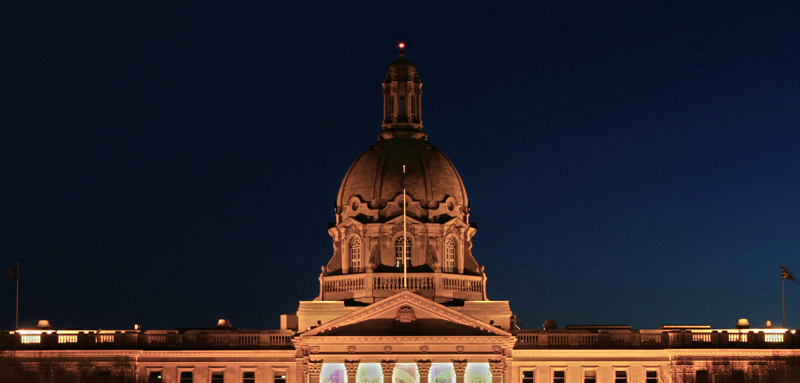
Alberta Immigration and Multiculturalism has released its second annual report, highlighting numerous government actions taken over the past year to combat racism, celebrate diversity and advance the implementation of recommendations outlined in Alberta’s Anti-Racism Action Plan.
Launched in 2022, Alberta’s Anti-Racism Action Plan included 28 recommendations to be undertaken over a three-year period. Although the plan identifies 28 distinct actions, the scope of work under each continues to expand. To date, 28 specific recommendations have been worked on and of those, 27 have been completed.
“This report showcases the steps our government is taking to implement measures that tackle systemic barriers and discrimination,” said Muhammad Yaseen, Minister of Immigration and Multiculturalism. “I am proud of the significant progress we’ve made so far. Together, government’s actions are helping to foster a more welcoming province.”
Achievements outlined in the report include creating Alberta’s first Black Advisory Council to support the ongoing work of the Alberta Anti-Racism Advisory Council and the Premier’s Council on Multiculturalism. These councils engage with communities on an ongoing basis to garner feedback and insight that inform efforts on anti-racism and cultural collaboration.
In addition to the work of the councils, in 2024 the Ethnocultural Grant program provided $5.1 million in funding to 182 projects to increase cross-cultural awareness, while the Anti-Racism Grant program provided $424,000 in funding to 49 anti-racism initiatives.
“The Council is so pleased to see the progress on the Action Plan and the government’s commitment to combatting racism through public education, empowering communities, data and measurement, systems change and taking action on hate incidents,” said Sania Chaudhry, Co-Chair, Alberta Anti-Racism Advisory Council. “There is much more work needed to be done, still, as racism and inclusion remain integral issues in our province. The Council is working hard on further recommendations in line with the Action Plan and is grateful for the opportunity to do so”.
Working to address racism requires cross-government action. Since the Action Plan was implanted, all departments have been tackling the issue. In Seniors, Community and Social Services, actions undertaken in the past year support First Nations and Métis groups in identifying and addressing systemic and social barriers, and in developing affordable housing supports.
“We know Indigenous peoples can face discrimination when trying to access affordable housing and available housing options may not always suit their needs,” said Jason Nixon, Minister of Seniors, Community and Social Services. “That’s why we have continued to work with Indigenous governments and organizations through our Indigenous Housing Capital Program to ensure housing meets communities’ needs and provides culturally appropriate supports.”
Indigenous Relations is committed to reducing disparities through implementing programs and initiatives that support Indigenous education, employment, emergency shelters, healthcare improvements and fostering cultural awareness.
“Alberta’s government is committed to honouring the Truth and Reconciliation Commission’s Calls to Action by addressing systemic bias and racism across the province,” said Rick Wilson, Minister of Indigenous Relations. “We continue to work with Indigenous leaders to ensure policies and programs include Indigenous perspectives so that our work remains culturally appropriate and effective.”
The Alberta Security Infrastructure Program (ASIP) supports faith-based and community groups at risk of hate or bias-motivated violence by funding security assessments, security infrastructure improvements, training, equipment and immediate security response measures. In response to hate sentiment, the government has expanded eligibility for this program to include Islamic and Jewish faith-based alternative schools, as well as Arabic bilingual programs in Alberta, until the end of 2025. In addition, Alberta’s Hate Crimes Coordination Unit continues to work with law enforcement groups across the province to help reduce and respond to hate-driven occurrences by facilitating training opportunities, inter-agency intelligence gathering and investigative supports.
“It doesn’t matter where you are from – in Alberta, everyone deserves to feel safe and respected in their community,” said Mike Ellis, Minister of Public Safety and Emergency Services. “Acts of harassment and vandalism have no place on our streets, schools or places of worship. Alberta’s government will do whatever it takes to end these types of crimes and to build safer communities for everyone.”
In addition, Alberta Education is updating curriculum to ensure opportunities to address anti-racism, pluralism and related topics are available across all subjects and grades, including English language arts and literature, social studies and physical education and wellness.
“Every student deserves to feel welcomed, respected and seen at school,” said Demetrios Nicolaides, Minister of Education. “That’s why our curriculum provides opportunities for students to explore and learn about diversity across Canada and the world. For example, our new K-6 social studies curriculum includes knowledge to help address racism, Islamophobia and antisemitism.”
Alberta’s government says it strongly condemns all forms of racism. Work continues across government ministries to address discrimination through many actions and initiatives to foster a more welcoming province.
-Province of Alberta Release


